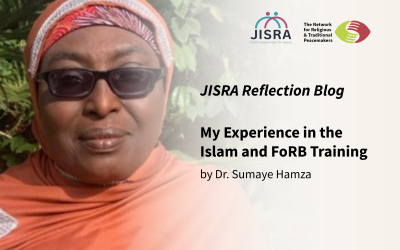
About the Peacemakers Network
The Network for Religious and Traditional Peacemakers (Peacemakers Network) facilitates connections between grassroots peacemakers and global players to enhance sustainable peace efforts. It supports the positive influence of religious and traditional actors in collaborative peacebuilding and peace mediation.
By fostering collaboration among diverse actors with shared goals, the Peacemakers Network operates inclusively, across multiple tracks, spanning from the local to the global level. It establishes consortiums comprising international organizations and local actors to maximize resources and achieve sustainable results. Initiatives are closely coordinated with local religious and traditional actors.
2024 Year in Review
As we reflect on 2024, we are inspired by the global call for change, driven by a collective desire for a more just, peaceful, and inclusive world. This past year has highlighted the strength of communities coming together to address inequality, resolve conflicts, and support those displaced, reinforcing our shared commitment to foster inclusive, sustainable peace. From increasing our membership, to convening interfaith dialogues in South Sudan to hosting local town halls on the role of religious actors on mental health and psychosocial support in conflict transformation in Asia and Latin America, our network continues to prioritize collaborative, localized and culturally-relevant solutions.

The Network’s 2020-2025 Strategy
The Network for Religious and Traditional Peacemakers has launched its strategy for 2020-2025. The strategy addresses all elements of the Network’s activities, including its structure, mission, approach, priorities, areas of concentration, and guiding principles. The strategy also reaffirms the Network’s purpose: to assist religious and traditional peacemakers to forge mutually supportive connections between them and others who have responsibility for building peace, preventing and ending conflicts.




